1803
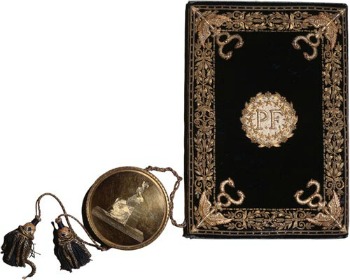
The Senate and House approved the Louisiana Purchase, acquiring nearly 800,000 square miles of land extending from the Mississippi River to the Rockies, including the future state of Nebraska.
1854
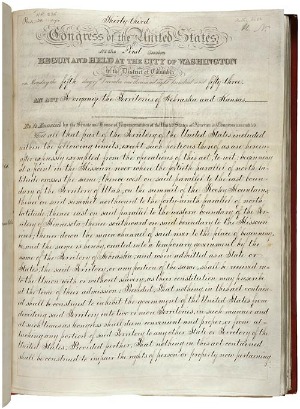
The hotly debated Kansas-Nebraska Act was approved by Congress. It repealed the Missouri Compromise and opened the Nebraska Territory to settlement.
1867
Nebraska was admitted to the Union as the 37th state. Congressional Republicans had passed a statehood bill for Nebraska in 1866, but President Andrew Johnson vetoed the measure. A second attempt in February of 1867 was more successful, with Congress overriding Johnson's veto to establish statehood for Nebraska. Nebraska is the only state admitted to the Union over a presidential veto.
1867

Thomas W. Tipton of Brownville and John M. Thayer of Omaha took the oath of office as Nebraska's first two U.S. senators. The senators then drew lots to determine class assignment. Tipton drew Class 1, with a term to expire on March 3, 1869. Thayer drew Class 2, with a term to expire March 3, 1871.
1877

Algernon S. Paddock of Beatrice became chairman of the Senate Committee on Agriculture (today's Committee on Agriculture, Nutrition, and Forestry), a position he held from 1877 to 1879, and again from 1889 to 1893.
1890
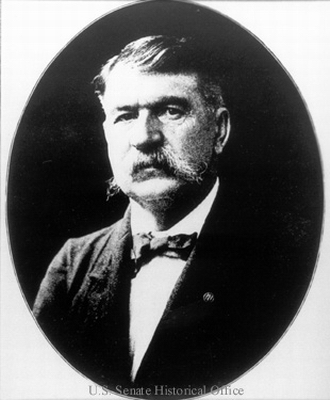
The Senate elected Edward K. Valentine of Nebraska as sergeant at arms. Born in Iowa, Valentine had settled in Nebraska after the Civil War where he studied law and opened a law practice in West Point. He represented Nebraska in the U.S. House of Representatives for four years before becoming the Senate's sergeant at arms.
1891

The Senate elected Senator Charles F. Manderson of Omaha as president pro tempore. Manderson served three terms as the Senate's presiding officer: March 2, 1891, to December 6, 1891; December 7, 1861, to March 3, 1893; and March 4, 1893, to March 22, 1893.
1893
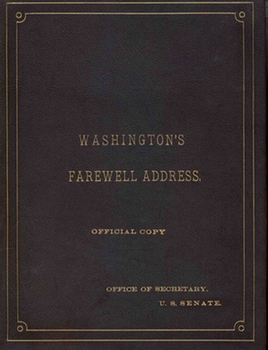
Senator Charles F. Manderson delivered George Washington's Farewell Address to the U.S. Senate, a tradition dating to 1862.
1899

John M. Thurston of Omaha became chairman of the Senate Committee on Indian Affairs, a position he held from 1899 to 1901.
1907

Senator Elmer J. Burkett of Lincoln delivered George Washington's Farewell Address to the U.S. Senate, a tradition dating to 1862.
1916
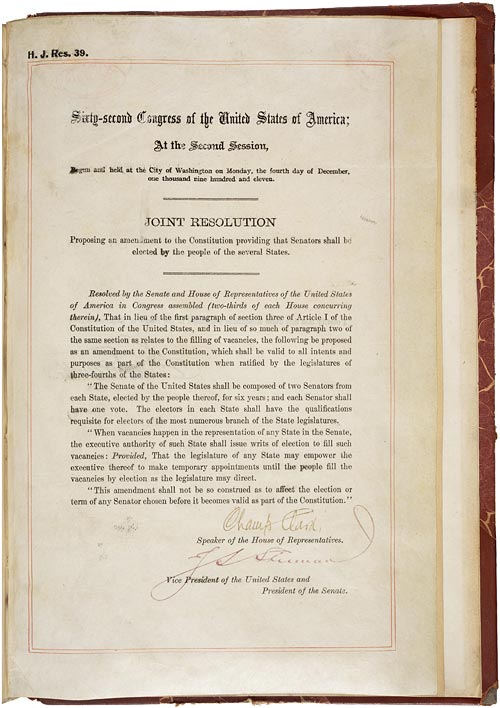
Incumbent senator Gilbert M. Hitchcock of Omaha became Nebraska's first directly elected senator following passage of the Seventeenth Amendment to the Constitution in 1913.
1918

Gilbert M. Hitchcock became chairman of the Senate Committee on Foreign Relations, a position he held from 1918 to 1919.
1921

George W. Norris of McCook became chairman of the Senate Committee on Agriculture and Forestry (today's Committee on Agriculture, Nutrition, and Forestry), a position he held from 1921 to 1926.
1933
The Twentieth Amendment to the Constitution, originally proposed by Nebraska senator George W. Norris, was ratified by the states. The amendment ended the so-called lame duck sessions of Congress by changing the date of presidential inaugurations from March 4 to January 20.
1937
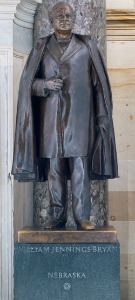
Statues of William Jennings Bryan and Julius Sterling Morton were unveiled in the U.S. Capitol as Nebraska's contributions to the National Statuary Hall Collection.
1940

Senator Edward R. Burke of Omaha delivered George Washington's Farewell Address to the U.S. Senate, a tradition dating to 1862.
1943
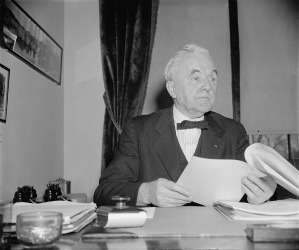
Senator George Norris ended his Senate career as Nebraska's longest-serving senator, having served a total of 29 years, 10 months.
1944

Senator Kenneth S. Wherry of Pawnee City was elected Republican Party whip, a position he held until 1949 when he advanced to party leader.
1949
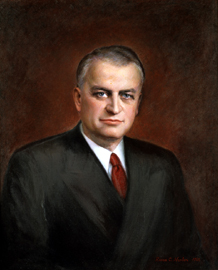
Senator Kenneth S. Wherry was elected Republican leader of the U.S. Senate and served until his death on November 29, 1951.
1954
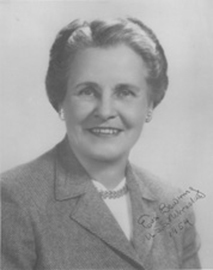
Eva K. Bowring of Merriman was appointed to the Senate seat left vacant by the death of Dwight Griswold of Scotts Bluff, becoming Nebraska's first woman senator. She was not a candidate for election to the remainder of the vacancy, but was replaced by Hazel H. Abel of Lincoln, Nebraska's second woman senator.
1961
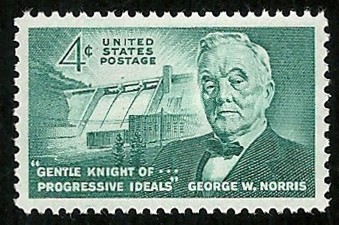
Former senator George W. Norris was featured on a U.S. postage stamp, one of the "Great Americans" series.
1970
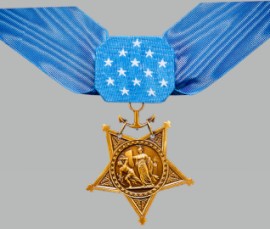
Future senator J. Robert (Bob) Kerrey of Omaha received the Congressional Medal of Honor. Wounded in Vietnam, Kerrey was awarded the Medal of Honor for "conspicuous gallantry and intrepidity at the risk of his life." Kerrey was elected to the Senate in 1988.
1971

Future senator Charles T. (Chuck) Hagel of North Platte became administrative assistant to Representative John McCollister, a position he held until 1977. Hagel was elected to the Senate in 1996.
1975

Senator Carl T. Curtis of Minden was elected chairman of the Senate's Republican Conference, a position he held for three years.
1977

Senator Edward Zorinsky of Omaha received the Golden Gavel Award for presiding over the Senate for 100 hours in a single session.
1995

Senator Bob Kerrey became chairman of the Democratic Senatorial Campaign Committee, a position he held for four years.
1998
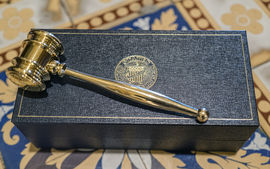
Senator Chuck Hagel received the Golden Gavel Award for presiding over the Senate for 100 hours in a single session.
2002

Senator Earl B. (Ben) Nelson of Omaha received the Golden Gavel Award for presiding over the Senate for 100 hours in a single session.
2009

Senator Mike Johanns of Omaha delivered George Washington's Farewell Address to the U.S. Senate, a tradition dating to 1862.
2017

Senator Ben Sasse of Fremont delivered George Washington's Farewell Address to the U.S. Senate, a tradition dating to 1862.
2018

Senator Ben Sasse received the Golden Gavel Award for presiding over the Senate for 100 hours in a single session.
2019

Senator Debra Fischer of Valentine delivered George Washington's Farewell Address to the U.S. Senate, a tradition dating to 1862.
2016
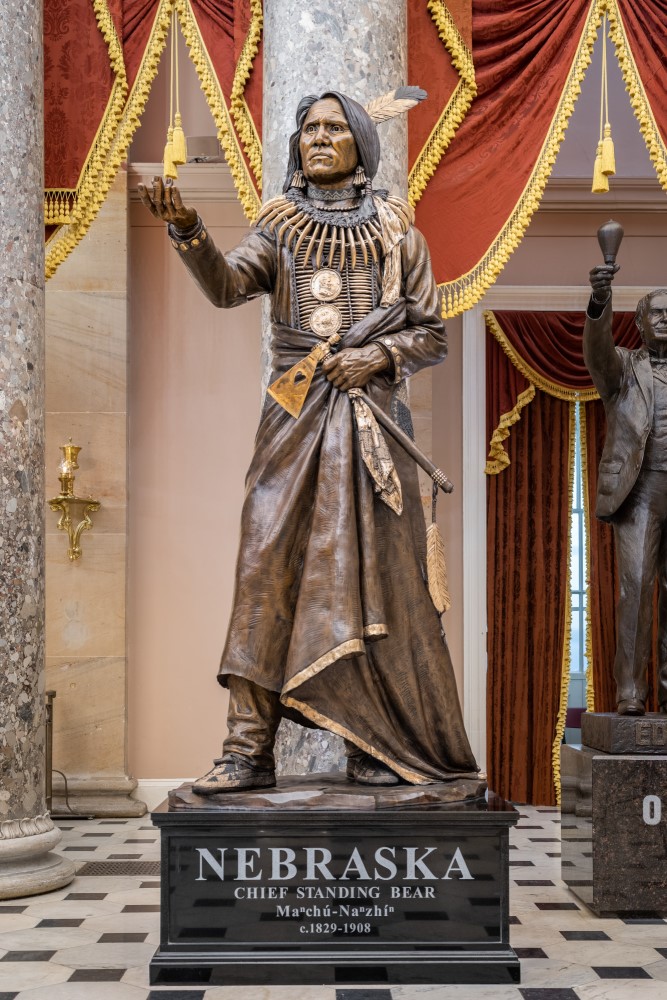
A bronze statue of Chief Standing Bear by artist Benjamin Victor was unveiled in the U.S. Capitol as part of the National Statuary Hall Collection. Chief Standing Bear replaces the statue of William Jennings Bryan that was unveiled in 1937.
2023
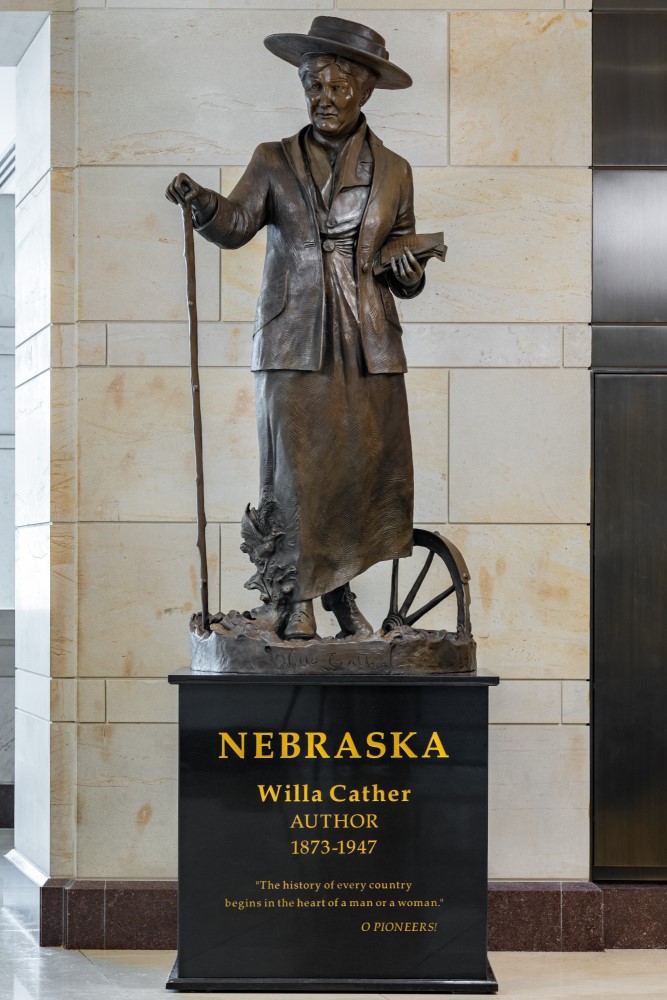
A bronze statue of Willa Cather by artist Littleton Alston was unveiled in the U.S. Capitol as part of the National Statuary Hall Collection. Cather replaces the statue of Julius Sterling Morton that was unveiled in 1937.